

Subscribe to EcoJustice Radio:
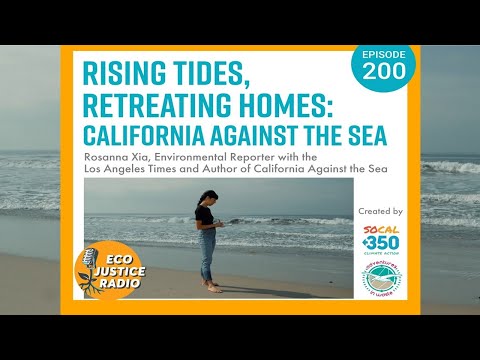
Watch this video on YouTube
High Tide and High Anxiety on the California Coast
Wherever land meets sea, global warming is wreaking havoc. As the ocean absorbs heat generated by the burning of fossil fuels and its attendant climate breakdown, its waters swell into overwhelming tides and city-engulfing storms. Glaciers melt, Pacific Islands shrink, Indonesians flee their seaside capital, and North Carolina’s beaches disappear with each passing supercharged hurricane. On this show, we talk with Environmental Reporter from the Los Angeles Times, Rosanna Xia, as she delves into these issues in her book, California Against the Sea.
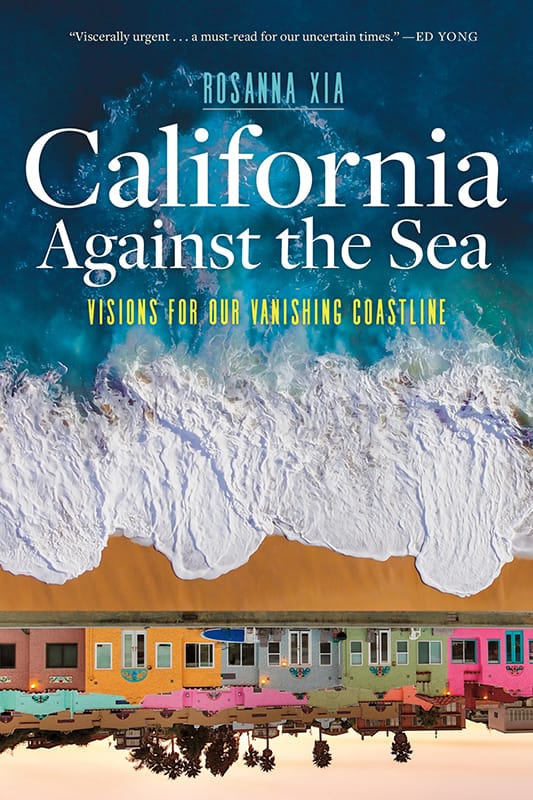
To adapt, governments, industries, and communities must work collaboratively through integrated, multidimensional management schemes that cross the boundaries of natural sciences, environmental justice advocacy, and engineering. Sadly, in our short-term speculative real estate-centric world, we are nowhere close to working together…but there are some positive signs.
Journalist and author Rosanna Xia provides an in-depth look at the complex challenges coastal communities face from rising seas. She draws on years of covering coastal management to unpack contentious issues like managed retreat, where communities acknowledge the ocean’s inevitable reclamation of land. We discuss the plight of homeowners and businesses struggling to save their properties as well as innovative solutions like wetland restoration, Rosanna Xia brings her extensive reporting to bear on how we can create more sustainable and resilient coastlines.
STORY: Charleston: Race, Water, and the Coming Storm
For an extended interview and other benefits, become an EcoJustice Radio patron at https://www.patreon.com/ecojusticeradio
Interview Excerpts – California Against the Sea
Sea level rise is both a global issue and also a micro issue in California
Jack Eidt: I’m particularly struck by the notion you put forward that the line between aquatic and terrestrial is ever changing and the two systems are forever intertwined. can you expand upon this?
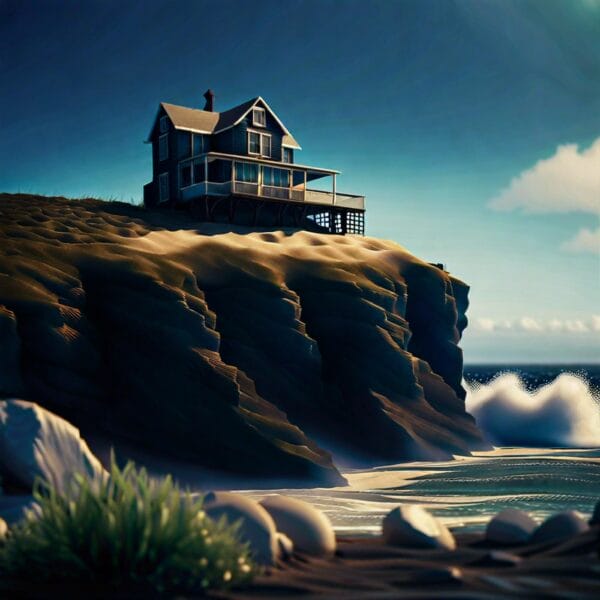
Rosanna Xia: Yes. The coast itself is fascinating. Right. It’s the very edge where land meets ocean, and there is an inherent tension between land and sea, but it’s also kind of. There’s this dance. And someone was saying the other day, it feels like the marriage of the two beyond all that. So often when I talk to people today, so many people still think about the coast, think of the coast as static, as, a place that doesn’t move, as a place that we visit and we recreate on, and we go to the beach and we expect it to be the same every time we go back. But the beach itself is actually a process, and it is this dance and marriage between land and ocean.
And I would say I was also guilty of thinking about the coast as more of a static place when I first moved to California. But it can truly be mind expanding to start just thinking about the coastline as an ever moving line in the know, rather than as something that we can fix in place and expect to be there. You know, the thing is, the coast is meant to, you know, our built environment has blinded us to this very basic truth. But if you stand on the beach for one afternoon, really slow down and pay attention and look at the tideline. That tideline is different every time the wave crashes onto shore. Right. And this line in the sand, I use this term a lot. This line in the sand, so to speak, is not supposed to be fixed. Yet we’ve tried to impose permanence onto this inherently impermanent landscape, whether it’s with Pacific Coast highway or sea walls or entire neighborhoods built right on the sand. And that’s truly at the heart of this conflict that we’re having and we’re facing right now in terms of what it means to face sea level rise going into the future.

Jack Eidt: Yeah, we’ve gotten ourselves into a massive problem here, and it is really sea level rise. How’s it going to look? I mean, a lot of people don’t really think, well, they think, well, it’s a lot worse. If you’re on the Pacific Islands or, even on the east coast, it’s much worse. California, it’s not so bad. what’s California looking for? Looking, can they look forward to at the coast as well as how is this an effect of our global climate? Cris?
Rosanna Xia: Yeah, I mean, sea level rise is both a global issue and also a micro issue for every community that is living on this edge between land and ocean. And a couple of thoughts here. First, on a very high level, I find it helpful to remind folks that sea level rise, in many ways, is the heart of climate change. I mean, we focus so much on carbon emissions, on land and air and air quality and stuff like that, but the ocean has absorbed more than 90% of the excess heat from the excess carbon emissions that we have emitted since the Industrial Revolution. The ocean is a huge producer of the oxygen that we breathe in this world. And so, put real simply, the ocean is getting hotter as a direct result of all of the excess carbon emissions that we’re putting into the atmosphere. And warm water expands and takes up more space and takes up more volume.
And so as the ocean is getting hotter and hotter every year, we are starting to increasingly feel the consequences of all that excess heat that the ocean has been containing for us in the form of sea level rise along our. So, you know, if you zoom into California and look at the numbers, and this is where I kind of cringe, because numbers only tell some of the story, right? And like, as a storyteller, I often tell students, people don’t necessarily remember data points, they remember how they feel when you talk to them about the meaning behind the data. But just to step back and really just lay out some of the key data points, it’s really sobering.
We’re looking at six, possibly seven feet of sea level rise in California by the end of the century. And that, of course, will translate somewhat differently depending on where along the coast you’re situated. but this six to seven foot projection is supposed to give you a broad sense of what we’re facing in California. And what does that mean? So there was a big USGS study a couple of years ago that found that more than $370,000,000,000 in property could be at risk of coastal flooding by the end of the century along California. And from an ecological standpoint we’re looking at more than two thirds of our beaches in Southern California completely drowned out by end of century if we continue business as usual.
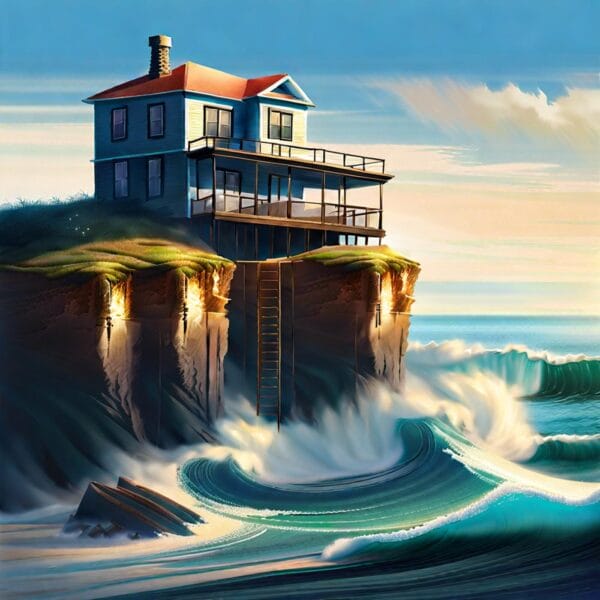
And there was also a really sobering study fairly recently that just looked at coastal wetlands along the Pacific coast from Washington all the way to Baja and Pacific coast, salt marshes could go completely extinct as an entire ecosystem by end of century if we continue to allow this coastal speeds to happen, if we continue to just move forward as, again this term, business as usual, without shifting course and to bring things a little bit closer to home than end of century, because that’s something I feel a lot of folks in the science and policy space has been kind of reflecting on beyond what still feels kind of abstract 2100. If we look at the projections now for even just the 2030s, we are looking at, a lot more intense flooding at higher frequencies and kind of this recurring nuisance flooding and recurring extreme flooding. And I think kind of shifting our mindset to thinking about the frequency of something that will happen as early as the next decade. And also in the now. there’s also been, a lot more focus on switching our policy and planning from 2100 to 2000. And 52,050 is less than 30 years from now. And so, for example, in California, more than a dozen state agencies recently agreed that the goal should be to prepare as many communities as possible for three and a half feet of sea level rise by 2050. So, I know I just threw a bunch of numbers at you, but I think we went from thinking about projections to the end of the century, which feels pretty apocalyptic. We’ve shifted it now to, like, 2050 and then even just kind of what it looks like next year and the next few years. We’re really facing a lot more frequent high tide flooding and storms and just a confluence of, truly the water moving back in. And we do have a lot of really intense questions to face in terms of how do we respond to that?
Jack Eidt: Absolutely.
California against the Sea explores our relationship with nature and climate change
This battle metaphor. This war metaphor. a lot of people might think that, okay, what you’re outlining here gives us even more reason to feel warlike. We have to go to war against the sea, the waves, the storms, the winds. How are we going to win? Well, we cannot win that battle. And we’ve shown the trouble that we’re in already without sea level rise, all the difficult things going on on the coast. we need to figure out how to start collaborating with these forces. you cover well in the myriad of places and communities you surveyed in the book. this concept of trying to work with in fits and starts sometimes. but you referenced the creative nonfiction writer John McPhee, who, was an influence on me as an environmental student. Ah.
Rosanna Xia: And his legend.
Jack Eidt: Yeah. Ah. His essay “Los Angeles against the Mountains” is an inspiration for your title. Can, you tell us how that inspired you?
Rosanna Xia: Yeah. So, Los Angeles against the Mountains is one of my favorite John McPhee essays. And it’s nested within a series called Control of Nature. And this idea of controlling nature is of an era, right, in terms of our relationship to the environment. And this notion that we can control nature is truly, a modern and Western notion. And it’s funny, you talked about the word reciprocity earlier. That is a huge theme in my book. And kind of this question of, can we reshift our relationship to the ocean and to nature and to the environment in a way that feels more reciprocal than a relationship that feels more like we are at war with the ocean and at war with nature? And I’ve been thinking a lot, too, as a writer, about the words that we use to talk about climate change. I mean, even something as innocuous as the fight against climate change is implicitly implying that we are at war. we’re at battle. We are fighting something, and what does it mean to work with nature? And so Los Angeles against the mountains, I mean, it is such an evocative title. California against the sea is directly inspired by that. My title is guilty of the warlike metaphors that we use to talk about our relationship to nature. I do hope that by the time you finish reading the book, California against the Sea is where we start the book, but it’s not ultimately where we end that journey. But California with the sea and California and the Sea isn’t as evocative of a title. So that got, California, and we’re not there yet. but I do hope we’re a little bit closer to that possible alternative future that we could be moving towards. By the book shows the path forward, or at least some paths and possible paths forward, but ultimately, this idea of being against the ocean.

I also like the play on words. I mean, California literally is against the edge of the, Yeah, I mean, we do tend to be stuck in these notions of walling ourselves off against the ocean, fighting the ocean, fighting climate change, fighting sea level rise. And a lot of it is due to the way we’ve structured our built environments and how we are choosing to live within nature and within these landscapes today. And a lot of it’s also embedded in the way we talk about it. And so I can’t fix climate change, but I can definitely think about the ways we talk about it and present alternative language and wording in terms of how we, can choose to relate to our surroundings.
Jack Eidt: Yeah, I would give the counterpoint, and we’re going to cover the California Coastal Commission later, but a lot of these, discussions about different projects do come down to fights. It may be an apt metaphor in certain situations.

Jack Eidt is an urban planner, environmental journalist, and climate organizer, as well as award-winning fiction writer. He is Co-Founder of SoCal 350 Climate Action and Executive Producer of EcoJustice Radio. He is also Founder and Publisher of WilderUtopia, a website dedicated to the question of Earth sustainability, finding society-level solutions to environmental, community, economic, transportation and energy needs.
Podcast Website: http://ecojusticeradio.org/
Podcast Blog: https://www.wilderutopia.com/category/ecojustice-radio/
Support the Podcast: Patreon https://www.patreon.com/ecojusticeradio
PayPal https://www.paypal.com/donate/?hosted_button_id=LBGXTRM292TFC&source=url
Executive Producer and Host: Jack Eidt
Engineer and Original Music: Blake Quake Beats
Episode 200
Published 11 December 2023, Updated 21 December 2023

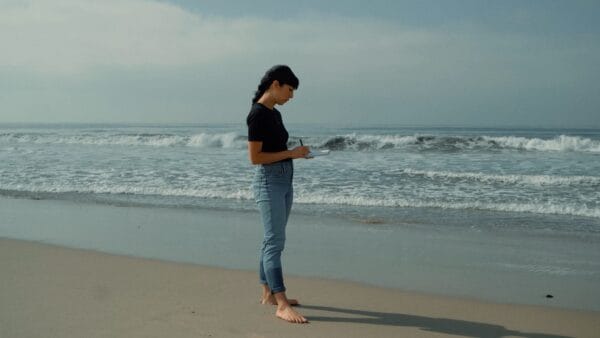


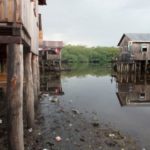
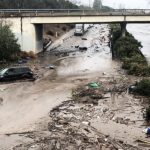
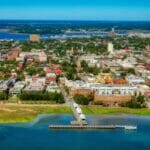







Pingback: Charleston: Where Race and Sea Level Rise Intersect - WilderUtopia